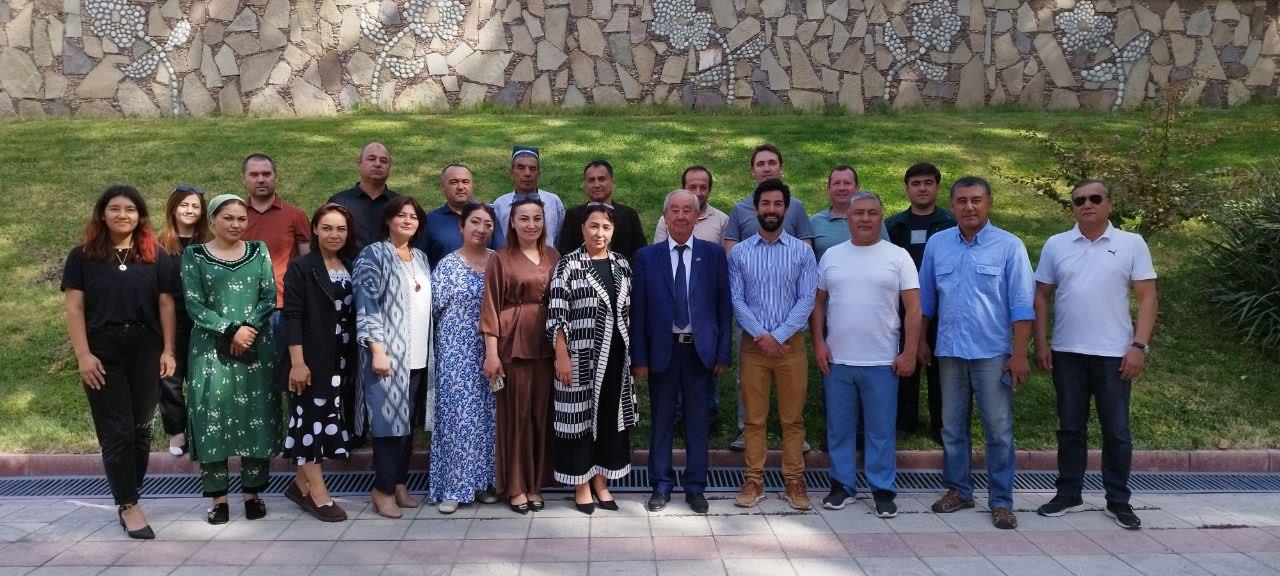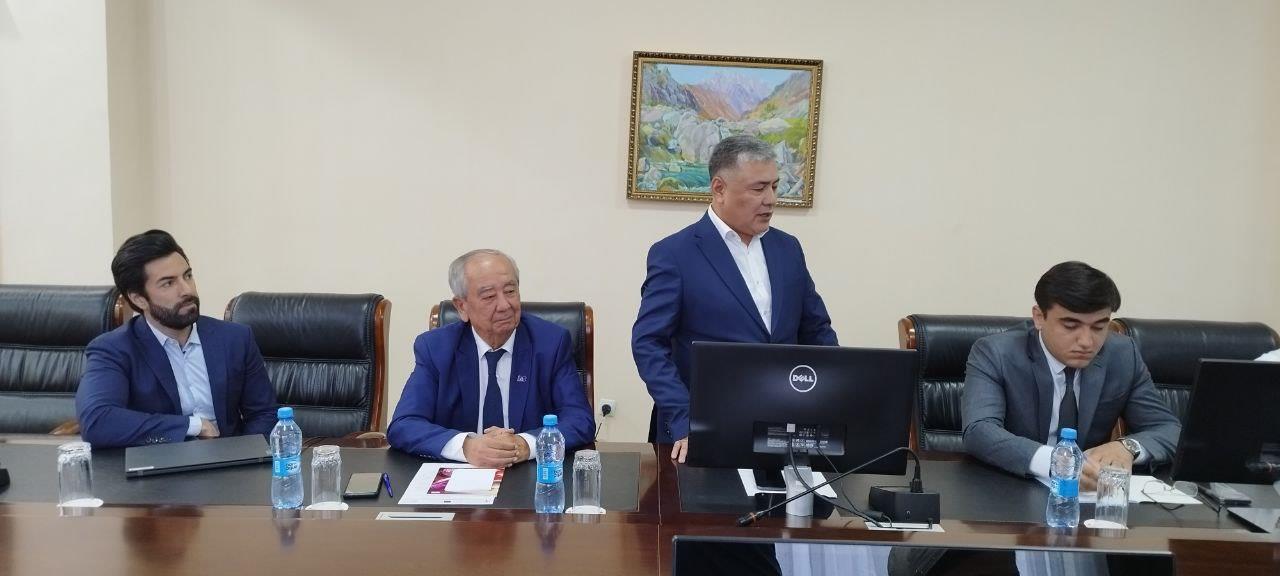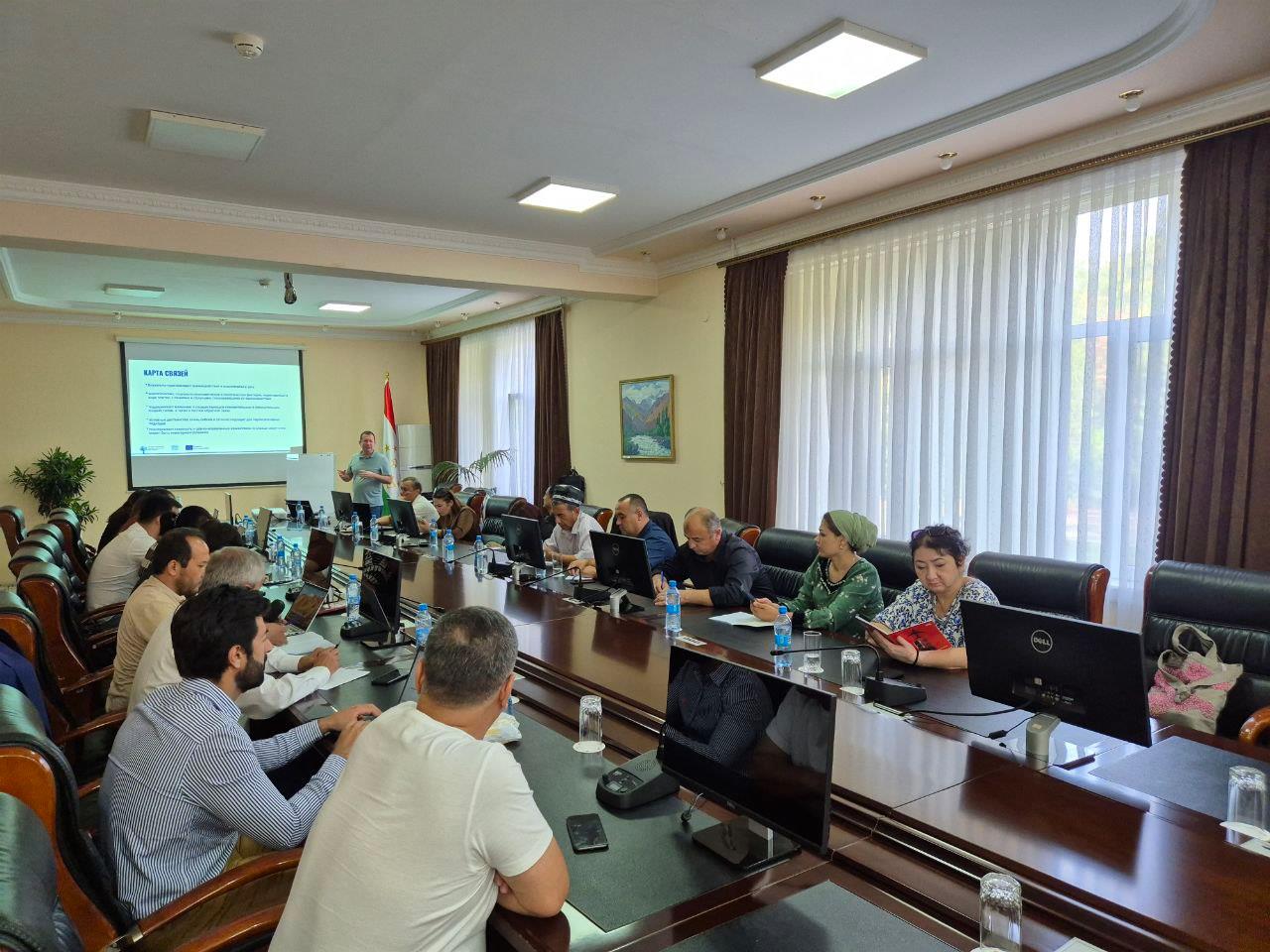No. 85 (609) September 2025
TAILORED TRAINING FOR TRAINERS OF THE SELECTED GRANTEES IN UNEP TOOLS AND APPROACHES
On 24–25 September 2025, a final Training of Trainers (ToT) was held in the city of Guliston, Republic of Tajikistan, for selected grantees under the adapted UNEP training package for community-level environmental action planning in the Fergana Valley. The training was organized as part of the project “Facilitating Region-Specific Approaches to Addressing Climate and Environment-Related Risks for Socio-Economic Stability in Central Asia.”

The aim of the training was to share UNEP’s adapted methods and tools for climate risk analysis and community engagement in the Republic of Tajikistan. Trainers included Sherzod Muminov, Boris Gojenko, and Alexandr Dolidudko from SIC ICWC, along with Moser Rafael, Program Manager of the EU-UNEP Partnership, and Latif Sultonov, National Project Coordinator for Tajikistan.

The training was attended by representatives from three grant recipient organizations selected to implement sub-projects in Tajikistan:
- Youth Group for Environmental Protection (YGPE)
- Consortium of NGO Safi and NGO Subhi Tandurusti
- Rural Communities Development Agency
The training was designed as an interactive discussion, with a focus on adapting UNEP’s approaches to the specific conditions of the Republic of Tajikistan. As with the previous two trainings held in the Kyrgyz Republic and the Republic of Uzbekistan, this session in Tajikistan consisted of two comprehensive components: theoretical and practical.

On the first day, participants explored fundamental concepts and terminology related to climate change, social stability, and the interconnections between climate and socio-economic resilience. The session also introduced the Strata platform (developed in collaboration with FAO – unepstrata.org), and showcased a range of nature-based solutions implemented in Africa, Asia, and Latin America.
Key topics included the engagement of local communities in climate adaptation planning and decision-making, with an emphasis on participatory methods.
During the interactive discussion at the end of the first day, participants highlighted the importance of the project for enhancing socio-economic stability in the region. They also underscored the critical role of environmental cooperation in areas such as ecology, water resource management, and climate adaptation.
The second day was dedicated to practical exercises focused on joint problem analysis and collaborative brainstorming. Participants were introduced to a set of analytical tools, including: Connectors and dividers; Problem trees and solution trees; Seasonal calendars and Relationship maps.
In addition to problem analysis tools, participants were also introduced to decision-making tools such as feasibility matrices, priority matrices, and scenario analysis.

During interactive sessions, participants collaboratively developed methods for climate adaptation tailored to the target areas of the Republic of Tajikistan. These included:
- Developing approaches and methodologies for gathering community-level perspectives on climate adaptation and its impacts.
- Conducting practical exercises focused on collecting and analyzing local-level data and information.
Throughout the training, participants engaged in active discussions on the strong interlinkages between climate, environment, and socio-economic stability, and explored various approaches for identifying climate-related risks, as well as developing adaptation strategies and environmental solutions in priority project areas.
By the end of the training, participants had acquired the technical skills and knowledge necessary to effectively implement and scale project activities at the community level.